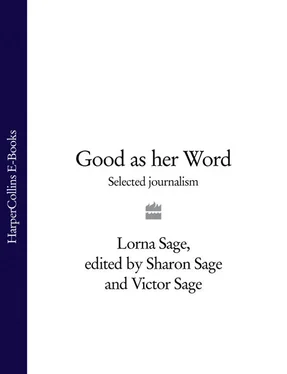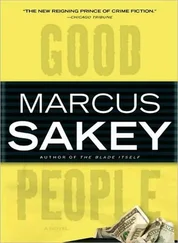Her own life, for the moment, was going well (was, in other words, only routinely precarious, dogged with money worries, begging letters from Godwin, and Shelley’s relation to Claire) and that seems to have enabled her to create the elaborate mythic mix of loneliness, guilt and innocent outrage that makes the novel such a splendid focus for everyone’s nightmares.
Usually, though, and almost always in the long years of her widowhood (she was 24 when Shelley died), her complex inner life was consigned to the amorphous, unhappy pages of her journal, where it came to nothing: ‘It has struck me what a very imperfect picture these querulous pages afford of me . This arises from their being a record of my feelings, and not of my imagination … my Kubla Khan, my pleasure grounds.’ She seems to have played her part courageously, but (as though the playing of it exhausted her, as well it might) she became more and more unable to imagine. Her losses and her memories isolated, as she said ‘islanded’, her, ‘sunk me in a state of loneliness no other human being ever before, I believe, endured except Robinson Crusoe.’
There were compensations – her surviving son Percy Florence (reassuringly ordinary), her socialising: she was abused by Shelley’s friends for her lack of radical fire, but she could reassure herself that while she couldn’t deal with abstractions (except in symbols), she practised liberation (‘I have never written to vindicate the rights of women, I have ever befriended women when oppressed’).
A very clever, perceptive woman. And yet still in eclipse. Jane Dunn retells the story fairly straightforwardly, but that’s not enough to rescue Mary Shelley from unreality. It was a mistake, too, to underplay the fiction and the intellectual issues (references to ‘Shelley and his philosophising, and his ideas’ just won’t do) as if they weren’t part of the life. All too often Jane Dunn gets stuck on the conventional surface of her narrative (Byron was ‘worldly, red-blooded and extravagant’, Paolo ‘a hard-working but amoral Italian’) when what’s needed is precisely the boldness and inventiveness to delve underneath and challenge that ready-made perspective; and I suspect that her assumptions are too common-sensical and un-literary for such a venture.
Good as her word
Elizabeth Gaskell: A Portrait in Letters J. A. V. CHAPPLE ASSISTED BY L. G. SHARPS
MRS GASKELL’S VICTORIAN REPUTATION for goodness has survived modern scholarship. Most of her writer-contemporaries have long been satisfactorily shown up as selfish, obsessive, perverse, quirky or inadequate: her all-round human decency seems simply confirmed by what we learn about her. She disapproved of introspection (it was ‘morbid’ and narcissistic, a form of hypochondria) but no commentator since has seriously claimed she had an ‘other’ secret self. She remains bewilderingly nice.
The result is that a book like Elizabeth Gaskell: A Portrait in Letters is bound to seem at first insipid. Her ‘Cranford’ (Knutsford) childhood may have had its sadnesses – she was after all motherless, and in effect fatherless, living with her aunt – but no letters survive to say so, and there is much fictional evidence to the contrary. Her marriage to Unitarian minister William Gaskell at 21 sounds happy enough, even if it didn’t sustain the first honeymoon rapture; she worked with him; she loved her four daughters dearly; and though the death of her baby son in 1846 was a dreadful sorrow, she turned from personal grief to chronicle the sufferings of the Manchester working classes in her first novel Mary Barton .
Her writing thus came to seem an extension of her indefatigable social and charitable work in her husband’s parish and beyond – exactly what, in contemporary terms, it should have been. And she has of course (true to her anti-self-consciousness line) little to say about the processes of imagination, or the art of writing: ‘a good writer of fiction,’ she says to an aspiring authoress, ‘must have lived an active and sympathetic life if she wishes her books to have strength and vitality in them. When you are forty.…’
The Portrait in Letters , in short, is hardly a self-portrait. But from another angle, this very omission is fascinating. What we get is a picture of a ‘self’ diffused, a ‘self’ distributed and absorbed in the family, and in society at large – an unperson surprisingly like Mrs Ramsay in Virginia Woolf’s To the Lighthouse , or even Mrs Dalloway. Mrs Gaskell is sturdier and much more worthy, but there is something of a stream of consciousness in her letters, especially those to her eldest daughter. This one starts off on a charitable project:
We have got up to £2,236, and have more in hand. And I have had a letter from Mr Walpole (brother to the Home Secy) saying his brother will help on the Government pension, and the Hornbys (cousins of Lord Derby) are stirring him up; so we are in good hopes. I should think any air of Mendelssohn’s must be beautiful. Don’t call Shifts chemises. Take the pretty English word whenever you can … independently of the word we shall be most glad of the thing . Flossie is at her last shifts in two senses.…
‘Shifts’ indeed. She’s a brilliant lateral thinker, an almost infinitely divisible woman: ‘One of my me’s is, I do believe, a true Christian (only other people call her socialist and communist), another of my me’s is a wife and mother … that’s my “social” self I suppose. Then again I’ve another self with a full taste for beauty …’ One is not, however, to imagine these selves squabbling or repressing one another (this is not introspection); they are all equally present, equally vocal.
Her reaction to literary fame was not to concentrate herself, but to spread her energies yet further. She travelled to Paris, to Italy, to Germany (as well as to the Lake District and Oxford), acquiring more and more connections, without shedding those in Manchester or London or Knutsford. Henry James, a friend of friends, recognised in her the social spirit that held fictions – and people – together: ‘Clear echoes of a “good time” (as we have lived on to call it) break out in her full, close page.…’ She saw what she was not – she admired George Eliot from a distance, and paid tribute in her Life of Charlotte Brontë to the woman writer who most questioned her values. She believed implicitly in the importance of the individual, though in certain senses she wasn’t one.
She was, perhaps, something more rare. Most good women turn out on closer inspection to be hypocritical, envious or dim (or of course bad), while she genuinely delights in living in and with others. Professor Chapple and Mr Sharps, in assembling the book (and doing an admirable job in making material from the 1966 Manchester University Press Collected Letters practically available) make no great claims. Professor Chapple ends indeed by quoting Charlotte Brontë on Mrs Gaskell: ‘Do you who have so many friends – so large a circle of acquaintance – find it easy, when you sit down to write, to isolate yourself from all those ties, and their sweet associations, so as to be your own woman … ?’ The answer was no. You couldn’t and be good.
Flora by gaslight
The London Journal of Flora Tristan TRANSLATED, ANNOTATED AND INTRODUCED BY JEAN HAWKES
FLORA TRISTAN’S INTEREST AS an investigator of nineteenth-century London starts with the fact that she is so un-English – so utterly immune, that is, to the atmosphere of decorum and common sense that covered the English public women of her time like a veil.
It’s not just that she is French, or at least it’s more complicated than that: her parents were a French émigrée and a Peruvian grandee; she was dubiously legitimate and certainly disinherited; her own marriage failed, and when, after a battle for the children, she won a court separation, her husband shot her in the back and got 20 years – all of which she rushed into print, along with an account of her voyage to Peru to claim kin. Unsuccessfully – hence her hand-to-mouth career as a wandering socialist prophet, and hence the London Journal , based on her visits in the 1820s and 1830s. She was also Gauguin’s grandmother, as the most recent biography (C. N. Gattey’s Gauguin’s Astonishing Grandmother ) chauvinistically announces.
Читать дальше












